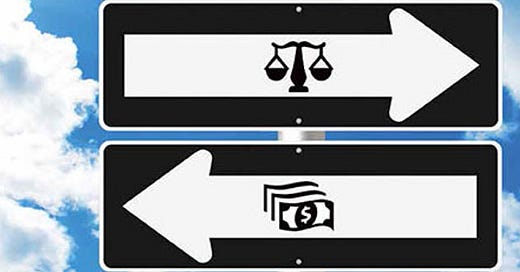The Equality Equivocation
Challenging the Misconception of Equality in Wealth and Opportunity
Leftists constantly harp on the so-called problem of inequality—by which they mean inequality of income, wealth, or opportunity. Paul Krugman bemoans “the ever-growing gap between the rich and the rest.”1 Barack Obama says inequality is “the defining challenge of our time.”2 Ezra Klein says inequality “offends our moral intuitions” and “tears into the fab…
Keep reading with a 7-day free trial
Subscribe to The Objective Standard to keep reading this post and get 7 days of free access to the full post archives.





